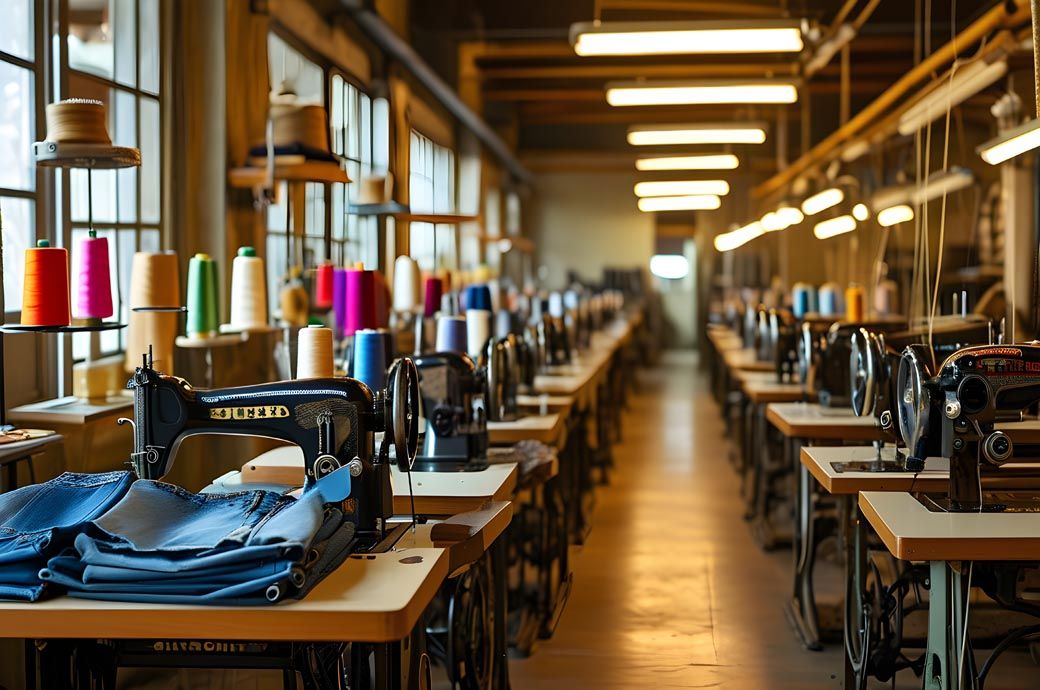The manufacturers are Adidas, ASDA, C&A, H&M, Inditex, Marks & Spencer, Subsequent, Puma, PVH Corp, Tesco, Primark and Walmart, based on home media studies.
BHRRC sought data on how manufacturers had been dealing with disruptions in Bangladesh, sustaining accountable buying practices and supporting suppliers and affected garment employees amid quota reform protests.
Twelve out of 20 world attire consumers haven’t shifted work orders from Bangladesh regardless of the home unrest and have been sustaining order stability, a survey by the Enterprise and Human Rights Useful resource Centre discovered.
A number of manufacturers had been reluctant to supply data on the impression of the protests on how they’ve ensured accountable buying practices and safety of employee welfare.
A number of manufacturers had been reluctant to supply data on the impression of the protests on how they’ve ensured accountable buying practices and safety of employee welfare in the course of the unrest.
13 surveyed manufacturers indicated they haven’t imposed penalties for late deliveries following the availability chain disruptions.
The Useful resource Centre inquired about how manufacturers monitored employees’ wage funds and ensured that wages had been paid on time and in full for the July-August interval.
About wage cost, seven consumers—Hole, PUMA, PVH, Primark, Tesco, Subsequent and H&M—reported full- and on-time wage cost for July had been made whereas Adidas, ASDA and M&S outlined how they monitored wage funds for July and August, however they didn’t affirm that wages had been paid on time and in full. C&A, Inditex and Walmart, nonetheless, didn’t reply this vital query.
ASDA provided a provide chain finance possibility, whereas M&S offered vendor finance and letter of credit score choices to ease money movement points, the survey discovered.
C&A provided low-interest or no-interest financing to suppliers and in addition lined the price of air shipments to mitigate supply challenges.
Primark prolonged manufacturing and supply timelines, providing non-financial help to assist suppliers handle manufacturing disruptions and meet deadlines with out penalties, the survey report added.
Business insiders, nonetheless, argued that the oblique losses are even better particularly as they need to incur monetary losses resulting from expensive air shipments whereas they’re afraid of longer-term impression on the nation’s attire business.
The reported impression on employees included necessary time beyond regulation to fulfill lead instances, elevated manufacturing targets to offset monetary losses or keep away from order cancellations, elevated transportation prices for employees to succeed in factories, and non-payment of wages or delayed wage funds, based on the BHRRC.
Speaking to the FE, Fazlee Shamim Ehsan, government president of Bangladesh Knitwear Producers and Exporters Affiliation (BKMEA), mentioned large manufacturers are very strategic as they might not shift orders by making an announcement.
“Rapid shift or order switch won’t be doable as there are a lot of phases to finish a piece order together with uncooked materials buy, manufacturing stage and cargo,” he mentioned, including: “However many factories have confronted expensive air shipments just lately.”
He mentioned airfare has gone as much as US$6.0-7.0 per kg which was solely $2.50 per kg even a month in the past.
Over the last month, order placement was slower indicating that orders might need shifted particularly these of small consumers from small factories, he mentioned, including: “As soon as small factories lose any of their consumers, it’s troublesome to get them again.”
Responding to a query about wage arrears, Mr Ehsan mentioned there are some factories which can be but to pay wages as they’re small in dimension and struggling to get again work orders whereas they had been additionally dealing with issues as banks are usually not offering any help.
In accordance with industrial police sources, there are some 70 factories underneath its jurisdiction that didn’t pay July wages whereas the proportion for August wage cost was 93 per cent till Wednesday.
In accordance with IP sources and labour leaders, nearly all of the employees agitated over wage arrears and for growing completely different allowances together with attendance, tiffin and night time payments since August 29 whereas wage hike had been added to their calls for final week.
Fibre2Fashion Information Desk (DS)

